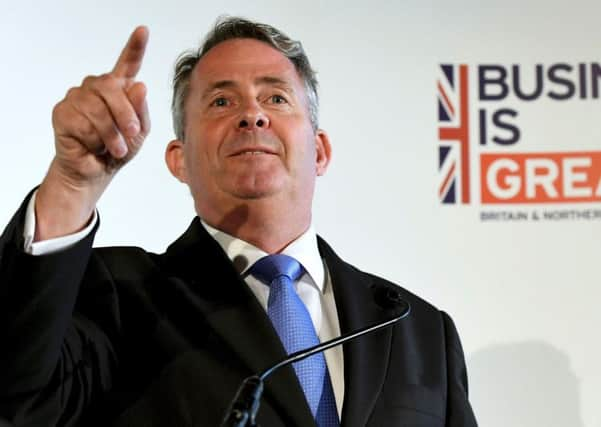Leader comment: Fox's free trade after Brexit is wishful thinking


And the real fall out will be around trade, which might be why International Trade Secretary Dr Liam Fox is preparing the ground in anticipation of the negotiations that are going to start, if not any time soon.
Dr Fox said yesterday that the UK’s trade with the European Union will be “at least as free” after Brexit as it is now. The basis on which he feels able to make that statement seems to be a belief that the European politicians would understand that any trade restrictions would hurt the people of Europe more than they would hurt the UK. Firstly it is very kind of him to think that the EU leaders would act in what is perceived as the best interests of the people of Europe when experience tells us that is not always the case.
Advertisement
Hide AdAdvertisement
Hide AdBut it seems a naive position to take. Tariffs have been and will continue to be introduced to protect producers and markets. Even if this provokes a reaction from the country against which the tariff has been introduced, there will still be cases where on balance the tariff is the best option. Dr Fox cannot say with any certainty that tarrifs will not be brought in.
And he has said for the first time that that he wants a post Brexit Britain to be a full independent member of the World Trade Organisation. This has been interpreted as his desire that Britian should seek a hard or clean Brexit, and then negotiate trade deals with the EU and other countries in the world.
But it might be not that he believes this is in Britian’s best interests but more pragmatically that he sees Britain is going to be hard pushed to stay in the single market without free movement of people - which would mean no or little control over immigration.
All the mood music coming from Europe is that there will be no significant concessions on what is required to stay in the single market. So it would seem that Dr Fox has given up on any negotiation over staying in the single market. And that would mean that Nicola Sturgeon’s quest for a different relationship with the EU that might leave Scotland still in the single market will be even less likely, and that the prospect of a second independence referendum moves a step closer.
But what Dr Fox fails to explain is just what happens in the interim before new trade agreements are hammered out. The deal which is being held up as a good example, the deal Canada has done with the EU that is expected to be signed in the near future, took eight years to negotiate. And Canada’s trade with the EU is far smaller and far less complicated than the UK’s. And without any bad feeling or rancour that Britain might face from its former EU colleagues upset at the damage done to their grand project. It seems inevitable that the economy will suffer while agreements are negotiated.